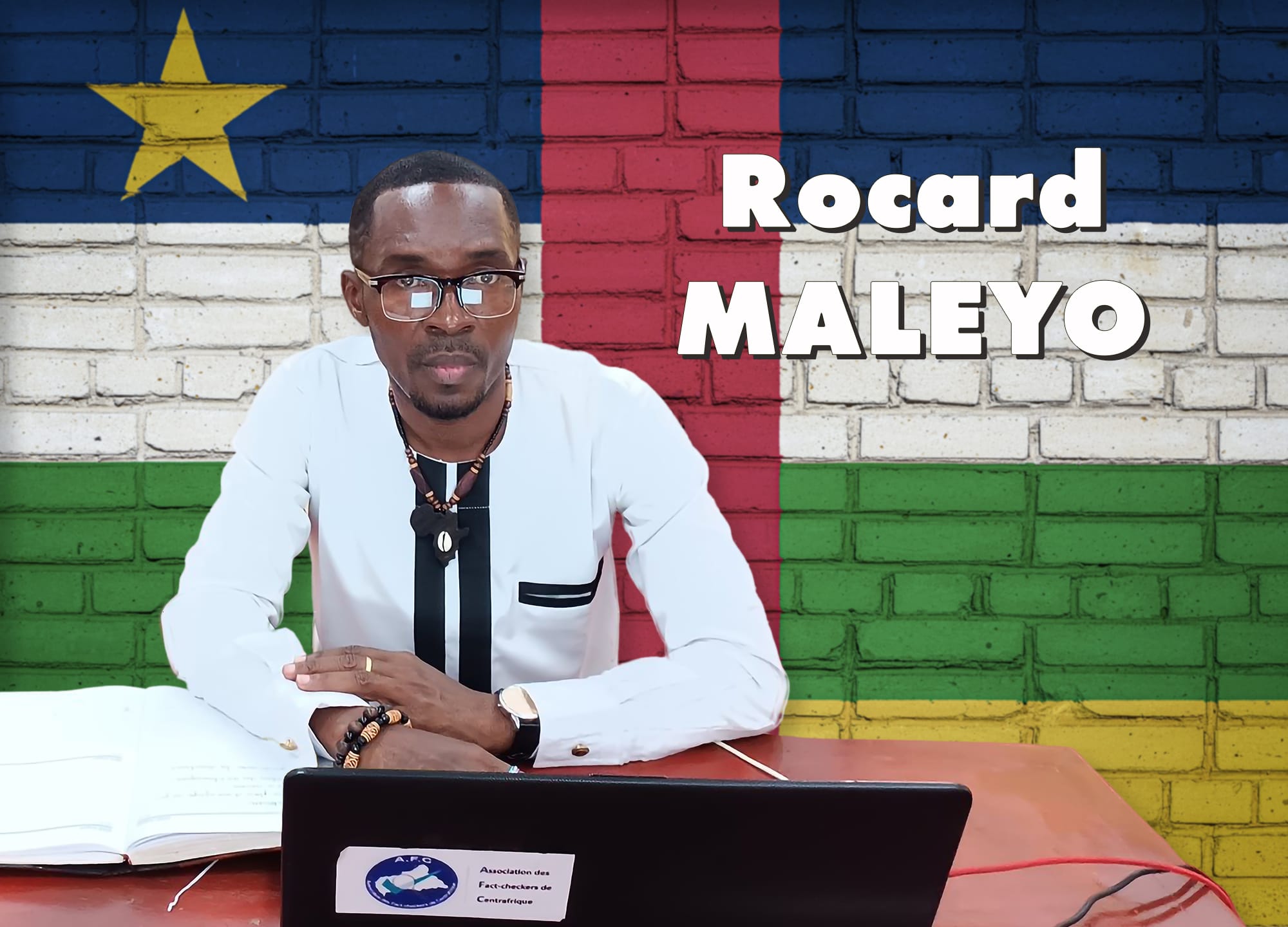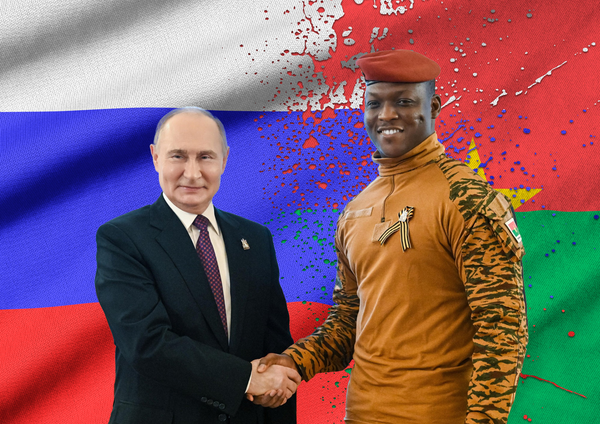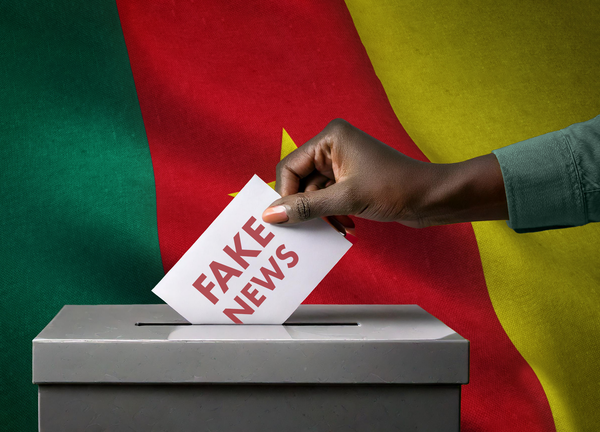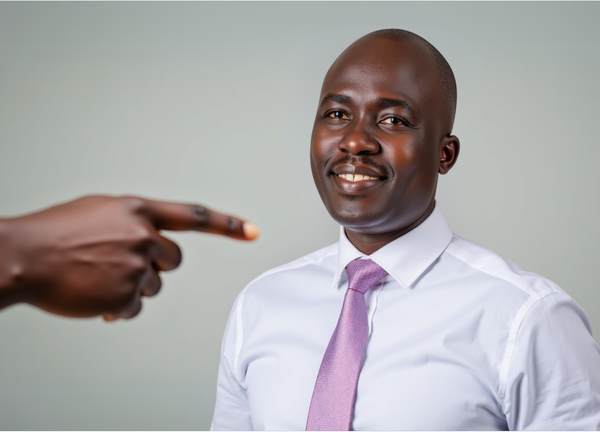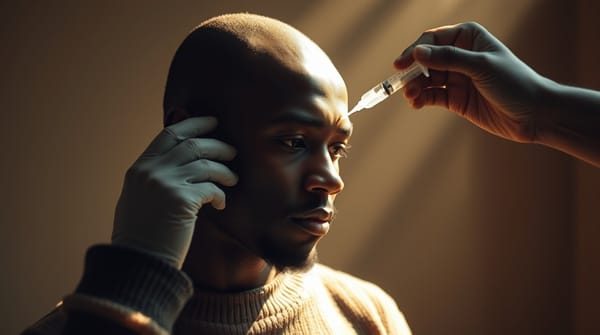Journalist in the Central African Republic for over 10 years, Rocard Maleyo is one of the country's emblematic factor. Anxious to assert the veracity of facts in the world of information, he is now at the head of the Actions Actions Actions Médias Development (AMD).
In the Central African Republic, disinformation has been raging for several years, greatly complicating the role of journalists. As early as 2019, Rocard Maleyo dedicated to the fight against this phenomenon, well rooted in the country. Panorama of the life of a journalist in the Central African Republic.
Rocard Maleyo starts his career in Kémo's voice, Community Radio of Sibut, at the center of the country. From 2013 to 2019, he was correspondent for Radio Kdèkè Luka, covering the crisis in all its aspects.
"It was an opportunity for me to postpone everything that populations lived as atrocities and human rights violations."
It is the beginning of an intensification of disinformation in the territory. As a reminder, in the 2010s, the Central African Republic experienced a political crisis promoting a fertile ground for media manipulations and the rapid dissemination of erroneous stories. Key moment of his career, the Central African journalist returned to Bangui in September 2019, where the Organization Interior for the meticulous discipline of Fact-Checking.
New knowledge in hand, another challenge begins, that of launch of media development actions. Created with the assistance of colleagues from the Central African Fact-Checkers Association (AFC), the Association comes to respond to the need to strengthen the critical thinking of the population in the face of this online phenomenon, which is not yet regulated by national law. This company results from a long reflection, on the alarming state of degradation of the media world in the Central African Republic.
"My two close collaborators died in the same circumstances"
“Our job is not to please, either than harm, it is to carry the pen in the wound. »»
The quote from the founder of journalistic ethics, Albert London, perfectly illustrates the challenges of Fact-Checking in the Central African Republic today. Provide the truth, just the truth, in a country where according to Mr. Maleyo
"Disinformation is first of all state"
Explaces journalists greatly. Security thus remains a major concern to date. A delicate subject, it complicates the work of reporters in the field. On site, insecurity is coupled with a lack of support.
“Suddenly, journalists are held in pincers by three forces: those who hold power, those of the armed groups, and those of the world powers that intervene in the country. He deplores.
In a momentum of sincerity, Rocard Maleyo engages on the most difficult experience of his career:
“My two close collaborators, Jean Saint Claire Makagbossokoto and Georges Ouapure Nzénzé died in the same circumstances, without being sick. […] Until then, the causes have remained hidden and that worries us. We ask ourselves questions. Who is the next round? »»
Jean Saint Claire Makagbossokoto died on February 21, 2022. According to his relatives, he was poisoned when he returned to the country. According to information from the Journalists Protection Committee (CPJ), he met a person related to the company Wagner Group a few hours preceding his death. Georges Ouapure Nzénzé is died on January 6 of this year during a similar scenario. He then returned from a press mission abroad. Both were fact-checkers, publication directors and managers part of the Central African journalists consortium for the fight against disinformation (CJCLD).
The challenges of verifying facts in the region are first of all security and legal, but also economic:
“[…] Those opposite have more means in order to activate the machine of disinformation, but we have very limited means. Then there is no formal legal protection framework for us. »»
Finally, the lack of technology can also constitute a brake. Still in the question of means, the use of artificial intelligence is for example of major importance to fight on equal arms without being distanced.
Recommendations of a Central African journalist
Former of the profession, for the journalist nothing beats the truth of the facts and the dialogue to ensure his protection in a hostile security and legal environment:
“Pressures and threats, we receive almost every day. We have registered in a dynamic of dialogue with all the actors whether they are of the government, the opposition or the powers that intervene in the country. […] "
He does not lose hope for the idea of responsible journalism emerging, by fact-checking. To do this, the Rocard Maleyo team is based on information at credible and verifiable sources. Not displaying an editorial position is also a first step towards a fair and equitable journalism.
“We treat the different subjects with the necessary balance so as not to breathe on the conflict embers. These strategies, even if they do not work 100 %, they nevertheless take us away from prosecution. He bid.
If looking for your information on site is the historical operating mode of the journalist, the advent of the Internet and social networks allows extensive online research. Fact-checking is thus based on monitoring methods, such as looking for inverted images.
The future of African Fact-Checking seen by Rocard Maleyo
The impact of fact-checking on public opinion in the Central African Republic would be more and more positive:
"Before, people were not concerned about this, but by the strength of serious work, information consumers are starting to perceive the importance of verification of the facts. »»
This ensures a promising future for the method in the region.
More generally, the information expert has ambitions for the process on the entire continent. This, as a pooling of efforts by networking at the regional level, but also a mobilization of financial resources on Africa, to effectively respond to the challenge of disinformation.
“Troll factories put a lot of means to achieve their ends, for effective answers, you also need adequate means. »»
The concept being still recent, Rocard Maleyo supports the importance of a generalization of practice throughout the media environment.

